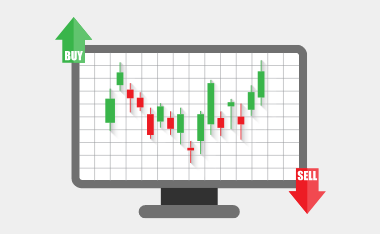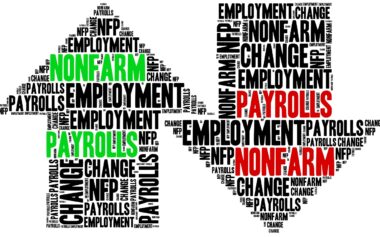How to Stop Losing Money on Bad Trades

As a forex trader, losing money on bad trades can be frustrating and disheartening.
It’s not uncommon to feel discouraged and even want to give up after a few losses.
However, it’s important to understand that losing money on bad trades is a part of the process, and it’s not the end of the world.
The key is to learn from these mistakes and develop strategies to prevent future losses.
In this article, we’ll explore practical steps that traders can take to stop losing money on bad trades and increase their chances of success in the forex market.
While it’s impossible to completely eliminate losses in forex trading, there are steps that you can take to minimize them.
By developing a strong trading strategy, managing your risk effectively, and keeping your emotions in check, you can limit your losses and increase your chances of profitable trades.
Whether you’re a beginner or an experienced trader, it’s essential to stay disciplined and focused on your goals.
So, let’s dive into the practical steps that you can take to avoid losing money on bad trades and improve your trading performance.
There Will Always Be Non Profitable Trades
One of the most important things to accept when it comes to trading is that there will always be bad trades.
No matter how experienced you are, no matter how much research you do, there will always be trades that do not perform as expected.
But how you handle these bad trades can make all the difference in your overall success as a trader.
The first step to avoiding excessive losses on bad trades is to accept that they will happen.
Going into trading with the mindset that every trade will be profitable is not only unrealistic but can also lead to reckless decision making.
To avoid this, you should go into each trade with a level head and a realistic expectation of what could happen.
This means doing your research, setting stop-loss orders, and not risking more than you can afford to lose.
It’s also important to keep a record of your trades, including the ones that don’t perform as expected.
This will help you learn from your mistakes and improve your trading strategy over time.
Think Long Term
Forex trading is not a get-rich-quick scheme.
If you want to be successful, you need to think long term.
This means having patience and sticking to a well-thought-out trading plan.
Short-term fluctuations in the market can be unpredictable and can cause panic for traders who are focused on short-term gains.
By thinking long term, you can avoid getting caught up in market hype and focus on making smart, informed decisions.
When developing your trading plan, consider your long-term goals and risk tolerance.
This will help you stay on track and avoid making impulsive decisions that could lead to losses.
Use a Proven Profitable Trading Method
Another key strategy for avoiding losses on bad trades is to use a proven profitable trading method.
This means finding a trading strategy that has shown consistent positive results and sticking to it.
There are many different trading methods out there, but not all of them are created equal.
Look for a method that is well-researched and has a clear set of rules for entering and exiting trades.
One method that has shown consistent success is the LIFT Method.
This method details each part of the investment journey, from planning to risk management to mindset, and focuses on entering and exiting trades with a profit focus.
By following a method like this, you can make clear-headed, professional trading decisions that will help you succeed in the long term.
Don’t Take All the Potential Trades
One of the most common mistakes traders make is taking too many trades.
It can be tempting to jump on every opportunity that presents itself, but this can quickly lead to losses.
To avoid this, it’s important to be selective about the trades you take.
Take the time to research each opportunity, consider the potential return and probability, and don’t be swayed by short-term market trends.
It’s also important to remember that not taking a trade is sometimes the best decision.
If you’re not confident in a particular opportunity, it’s better to sit it out and wait for a better one to come along.
Lock in Profits
One of the biggest mistakes traders make is not locking in profits when they have them.
It can be tempting to hold onto a winning trade in the hopes of making even more money, but this can lead to losses if the market suddenly turns.
To avoid this, it’s important to have a profit-taking strategy in place.
This means setting a target price for each trade and sticking to it. If the trade reaches your target price, sell and take your profit.
Another strategy to help stop losing money on bad trades is to have a clearly defined exit strategy.
This means having a plan in place for when you will exit a trade, whether it’s based on a specific profit target, a stop loss level, or a certain amount of time.
By having this plan in place before entering a trade, you can help remove emotions from the decision-making process and avoid holding onto losing trades for too long.
Cut Your Losses Short
One effective exit strategy is to use a trailing stop loss.
This means setting a stop loss order at a certain percentage or dollar amount below the market price, but as the market price rises, so does the stop loss.
This allows you to lock in profits as the market rises, but also limits your losses if the market turns against you.
It’s important to note that stop losses are not guaranteed, as in a fast-moving market, the price may gap beyond your stop loss order and result in a larger loss than anticipated.
Overtrading: How to Throw Good Money After Bad….
Overtrading can also be a major cause of losing money on bad trades.
Many traders fall into the trap of feeling like they need to be constantly trading to make a profit. However, this can lead to impulsive and poorly researched trades, which ultimately result in losses.
It is important to remember that quality is more important than quantity in trading.
Taking the time to properly research and analyse each trade before executing it can lead to more successful trades and a higher profit margin.
Balancing your time is key to avoiding the hazards of overtrading.
It is important to set aside specific times for trading and not to let it take over your entire day.
This allows you to properly research and analyse each trade, while also giving you time to focus on other important aspects of your life.
It’s also vital to take physical and mental breaks and step away from trading when feeling overwhelmed or emotional.
This can help you to maintain a level head and make more rational decisions when trading.
In addition to balancing your time, it is also important to have a trading plan and stick to it.
Your trading plan should include specific criteria for entering and exiting trades, as well as risk management strategies.
This can help you to avoid impulsive trades and stick to a well-thought-out strategy. It is also important to track your progress and make adjustments to your plan as necessary.
This can help you to continually improve your trading strategies and minimize losses over time.
In Conclusion
Losing money on bad trades is a reality of forex trading, but it doesn’t have to be a permanent state of affairs.
By accepting that losses will happen, thinking long-term, using a proven profitable trading method, being selective with trades, locking in profits, and having strategies in place, you can minimize losses and maximize profits.
Don’t let emotions cloud your judgment, but rather stick to your plan and keep a level head.
Remember that forex trading is a journey, and every trader faces ups and downs.
The key is to persist, learn from your mistakes, and keep striving to improve your skills and strategies.
It is crucial to take responsibility for your trading results and continually educate yourself on market trends, economic indicators, and technical analysis.
Seek out reputable trading coaches, attend workshops and webinars, and network with other traders to learn from their experiences.
Remember that forex trading is not a get-rich-quick scheme, but rather a long-term investment that requires patience, discipline, and perseverance.
By staying focused on your goals and staying true to your trading plan, you can build a profitable portfolio and achieve financial independence.
So don’t give up on forex trading, but rather embrace the journey, learn from your losses, and keep striving for success.
More Information
For more trading term general definitions, visit our A to Z of Forex Trading
To look at these concepts in action, please visit our sister site, Latest Forex Rates
What to do Next
If you have more questions or need further guidance, don’t hesitate to reach out to us at The Trading Coach International for personalized coaching and support.
If you would like to learn more about trading forex profitably and what steps you can take next to get on the right track to build your Lifestyle Income From Trading, you can book an no obligation, Free Strategy Call with our Lead Trading Coach by clicking on THIS LINK
Disclaimer
The information, strategies, techniques and approaches discussed in this article are for general information purposes only. The Trading Coach International does not necessarily use, promote nor recommend any strategies discussed in this article. The information in this article may not be suitable for your personal financial circumstances and you should seek independent qualified financial advice before implementing any financial strategy. The Trading Coach International is not a financial advisor and does not have AFS registration.


















